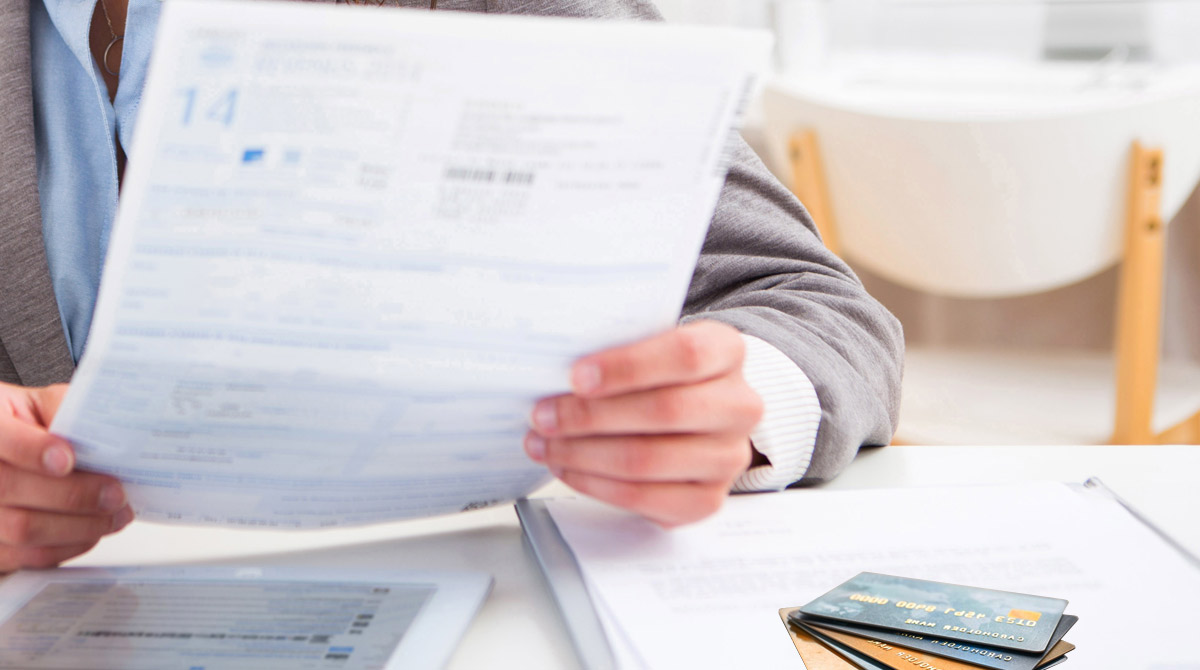
Your #1 Debt Collection Agency
In case you have a bill or account that has gone to collections, you might ask yourself what would happen if you fail to pay the debt collectors who are getting in touch with you. Of course, it will depend on the strategy taken by you–they will call you continually even if you avoid them; in fact, they will have no other way but to serve you a lawsuit if you apply your right to prevent them from getting in touch with you or calling you. At Coast To Coast Financial Solutions, we offer debt collection services to businesses in a wide array of industries. From an Accounts Receivable and consumer standpoint, here are some key points concerning debt collection straight from the source.
What Action Do Debt Collectors Take If You Fail To Pay?

1: Reported To The Credit Bureaus
Having a bill show up on you credit report in the form of an unpaid debt will be amongst the first steps a debt collection agency will do to take action on your account. If your unpaid debts end up getting reported to the credit bureaus, it can be enough to ruin your credit score for a considerable period of time and can likewise impact your capability of being approved for further credit–including vehicle loans, mortgages, credit cards, and other sorts of funding.
2: Frequent Attempts At Contact
Typically, a debt collection agency will call the debtor regularly in order to seek out payment on a past due account, or they will deliver a number of letters in an effort to collect. Even though it is not legal for them to call you consecutively, there is no regulation that will prevent a debt collection agency from getting in touch with you on more than one occasion each day–unless of course, you tell them specifically you would like them to get in touch you via writing.
3: Claim Your Assets
If you default on a line of credit or secured loan, the firm from where the money was borrowed can gain back the asset (such as a vehicle or property) by repossessing your automobile or foreclosing on your house, so they can cover the entire price of the loan. They likewise have the power to get back rent-to-own objects. Nevertheless, this is not a typical action taken by debt recovery companies, but something you should remain aware of.
Can You Be Sued By Debt Collectors?
Of course, accounts receivable companies have every right to file a lawsuit in the event of avoiding payment. Nonetheless, they need to follow several steps prior to filing a lawsuit. Usually, unsuccessful debt collectors will transfer a debt to another debt control company that will also try to collect on that debt. As a result, different agencies might send you a number of calls, as well as letters, before you get sued. Nevertheless, if a cease-and-desist letter is dispatched to you for preventing the debt collectors from getting in touch with you, their subsequent step is usually to prosecute you because it will no longer be possible for them to reach you for collecting that debt.

Statute Of Restrictions
The statute of restrictions on a particular debt is usually just 6 years from the instance when the debt was accepted, thus if an agency or company files a lawsuit, it’s going to take place within that period of time. It will be highly likely for a debt collector to file a lawsuit if they realize you are in a position to make the payment given that you have a steady source of income, and are merely choosing not to pay the past due amount; consequently, it would remain advisable to keep restrained interaction with them.
If a debt collection agency serves you with a lawsuit, it will be sensible for you to reply by the date requested on the documents served to you. At this stage, you will be judged by the court on how you should repay, which might incorporate a repayment schedule and/or garnishment of your salary.
How Will Your Credit Score Be Affected?
It is possible for unpaid debts to harm your credit score for a considerable period of time until the debt is paid by you or up to a period of 7 years prior to it falling off the report. This could affect your eligibility for securing loans as well as reduced interest rates. Moreover, too many collections accounts on your report could adversely affect opportunities for employment–particularly ones that are finance oriented or pertain to upper management. On top of that, it is also possible for it to affect your potential of passing a credit check while applying for a lease or rental home since property management companies and owners perform credit checks as part of the application process.

Delayed Payments
Delayed payments will also show up on your credit report depending on the type of account and how past due it is. Keep in mind that it’s also possible for any regular unpaid bill to have a negative effect on your credit score; nevertheless, the accounts given the most priority on your credit report are those intended for credit cards as well as some other lines of credit. In fact, when these sorts of accounts go into delinquency, their total balance will typically be due right away, depending on the agreement signed by you.
Delinquency + Default
Although you won’t necessarily end up in jail for failing to pay bills or even collections, there are some particular bills that will go into delinquency very quickly. Delinquency is usually not reported until after 90 days of successively missed payments; consequently, if you have any late payments over a period of 3 months, it is likely that these late payments will drop from your credit report within a couple of years, while delinquent accounts are going to stay on that report for as many as 7 years.
Multiple Collections Accounts
As you probably know, your credit score will be negatively impacted by having more than one open collections accounts, conveying to lenders your inability to pay the cash which you are obligated to repay. If the debt is not taken care of when you are approached by a debt recovery firm, and the debt is transferred to another collector, it has the potential to be duplicated on your credit report, which will increase the negative impact of the unpaid debt and make it even tougher to repair the credit report after a while, since the debt is going to be reported to at least one or more credit agencies. It is quite natural for debtors and consumers to become baffled while trying to repay any open collections accounts when they are not certain which account recovery firm is responsible for which particular debt.
Repossessions + Liens
 One can consider alien to be a type of security interest which has been granted over an object or property for securing the payment of any particular debt. These phrases are used interchangeably in the US; however, in other nations around the world, a lien is related more to real property as compared to personal property, where we usually define the security interests as a security agreement intended for debts having secured loans. The borrower collateral will be able to use these sorts of agreements for making sure that they are compensated even though you do not have sufficient cash for it–which includes repossessing any real property based on the type of lien and the debt.
One can consider alien to be a type of security interest which has been granted over an object or property for securing the payment of any particular debt. These phrases are used interchangeably in the US; however, in other nations around the world, a lien is related more to real property as compared to personal property, where we usually define the security interests as a security agreement intended for debts having secured loans. The borrower collateral will be able to use these sorts of agreements for making sure that they are compensated even though you do not have sufficient cash for it–which includes repossessing any real property based on the type of lien and the debt.
Charge-Offs
A charge-off is going to happen when a lender makes a decision that the debt results in a deficit for the company and ceases attempting to acquire the debt. As soon as a debt is specified to be a charge-off, it will show up as a negative mark and remain on your credit report for a period of 7 years. Nevertheless, the creditor will no longer try to acquire the debt from you anymore, but it’s still advisable to pay the debt in order to avoid hurting your credit score.
For improving your credit score, it will be essential for you to get in touch with the original lender to pay off the account well before it’s even delivered to a debt recovery firm. If you do this, the account will appear as a paid charge-off, which appears much better on a credit report as compared to an uncompensated charge-off. Even though it has been marketed, it will be still possible for you to pay the account by means of a collection firm, and your credit will receive the same effect.
Bankruptcy
The last resort in trying to resolve debt and collections is to file for bankruptcy. Even though a majority of current debts will be resolved in this way, declaring bankruptcy will stay on a credit report for a period of 7 to 10 years, and possibly even longer depending on the type of bankruptcy filed. As a result, your score will drop somewhere between 170 and 210 points.
Collector Calls
The main goal of debt collection agencies and account recovery services is to receive payment for past due accounts. Usually, collectors will not make any profit unless owed amount is collected by them in full. It’s normal to get frequent letters and phone calls from loan companies until you are able to make payments.

Thankfully, it would be possible to stop any call from the debt collectors simply by writing and also requesting them to refrain from calling. However, be aware that there are several debt collectors who tend to disregard this consumer rights regulation and carry on calling whatsoever.
On most occasions, collection agencies will be designated a debt for several months. If they fail to receive payment from you within that time frame, the debt might be taken over by a fresh debt control agency. This procedure is going to repeat a number of times over the years until you are able to make the payments.
Although a collections account can get passed from one particular collector to a new one and records will not be shared by them, and it’s still likely for you to receive a cease-and-desist letter for preventing collection calls or even a debt validation notice with the intention of forcing every single collector to show that you indeed owe that debt.
Credit Report Marks
Debt collections happen to be a severe form of delinquency as well as an indication to other lenders and creditors that payment promises have not been always kept by you. Because you appear to be a riskier debtor, several financial applications are more likely to get rejected. There is a major possibility that you will be rejected for a mortgage if you have any uncompensated debt collection on your credit report. Whether or not you are able to pay the collection, it will still remain on your credit report for the full credit reporting time frame. Subsequently, the collection is going to fall off the credit as soon as that time period expires. However, you will continue to owe that debt and it is still possible for the collector to pursue you, but the debt will no longer be shown on your credit report anymore.
Detrimental Interest Rates

However, not all financial applications will be denied due to the fact that there is a collection account on your credit report. Although you might be authorized, you will still need to pay a higher rate of interest since you will be seen as a higher risk debtor. Some other services, such as cable or smartphone, might require you to pay a security deposit upfront. Keep in mind that your deposit will be credited or returned to your account–provided that you are able to pay each month within the stipulated time frame.
Job Searching
Typically, it is not authorized for employers to have access to your credit report, as it is regarded as personal information. However, it still remains possible for a company to check your credit if you are applying for an upper-management role or a position within the financial sector.
Do you have any additional questions about the debt collection process or its effect on consumers and businesses? Or perhaps you’re a company or institution in need of outsourcing your debt collections due to high AR costs? Call our trained professionals at Coast To Coast Financial Solutions 805.506.8195 to learn more about the collections services we offer or visit https://c2cfsi.com/!





